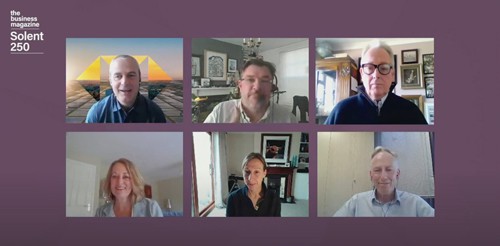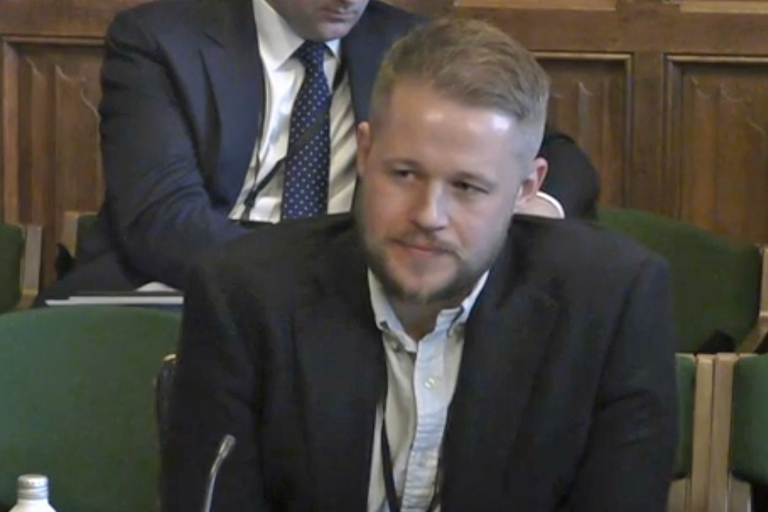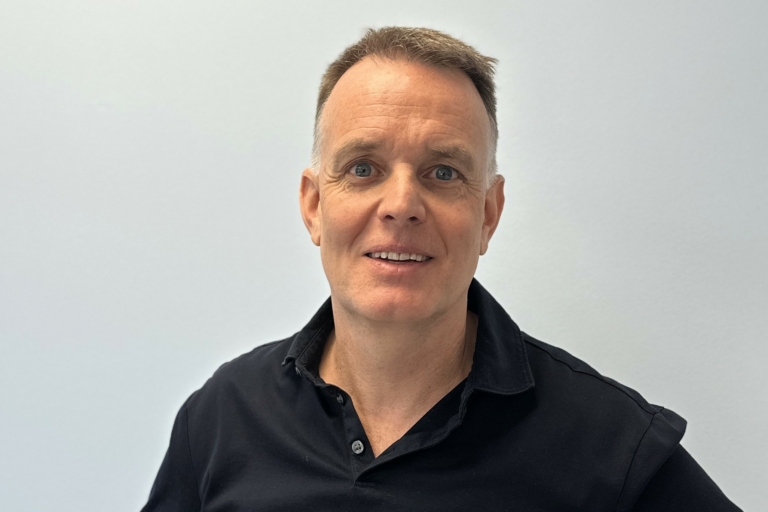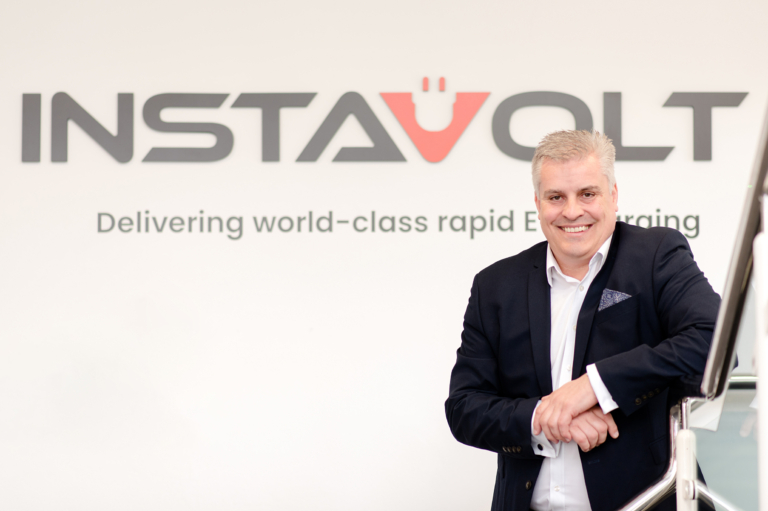The Business Magazine Solent 250 webinar: Driving value through sustainability

Speakers from the energy, utilities, transport, retail and finance sectors discussed what sustainability means to them, whether it is a cost or opportunity, and what the future holds.
The speakers

From left to right:
Rob King, head of sustainable finance at HSBC, chair of the webinar: “HSBC is committed to net zero carbon emissions by 2050 or earlier. Around 90% of our customers say sustainability is a tool for growth.”
Bill Bullen, managing director at Utilita: “We offer smart prepay energy services and have the highest penetration of smart meters in the UK, installed at over 90% of our 800,000 customers.”
Bob Taylor, CEO at Portsmouth Water: “Portsmouth Water has a 160-year history delivering water and has always paid close attention to environmental issues.”
Helen McNair, technical director at Lionel Hitchen: “We manufacture food flavouring ingredients and are taking numerous environmental initiatives, such as ethical audits of our supply chain.”
Leanna Lakes, operations director at Red Funnel: “Red Funnel is moving to net zero carbon emissions and working on marine environmental protection.”
Mark Smith, CEO at Southern Co-op: “Southern Co-op has always had a strong sustainability focus at its convenience stores, from Kent to Devon.”
Paul Anthony, regional managing partner (south) of RSM and Solent 250 sponsor, (not pictured) opened proceedings by describing sustainability as “one of the most challenging business issues we have faced”.
Why is sustainability important?
“It’s no longer acceptable to be carbon hungry. We are identifying what steps we can take in the value chain and making ethical choices about the way we operate,” said Lakes.
Like many food manufacturers, Lionel Hitchen is impacted directly by climate change. “Our supply chain is being disrupted, for example, by hurricanes in the Caribbean and the Kerala floods in India,” said McNair.
Consumers are playing a part in shaping sustainability initiatives at Southern Co-op. “Sustainability is rapidly coming alongside convenience and price in importance for customers,” said Smith.
The energy industry has been decarbonising for some time, pointed out Bullen. “Many of Utilita’s customers are low-income households, so cost-effectiveness is also critical for them. We are changing customer behaviours to help them save energy,” he said.
One of Portsmouth Water’s biggest challenges is getting the message across to customers about reducing water consumption. “Our industry has committed to carbon neutrality by 2030, but the UK is not particularly water efficient,” said Taylor.
Sustainability: cost or opportunity?
“It’s more than just a cost; it comes down to the environment in which we live and how we’ll leave it for future generations,” continued Taylor.
King noted that HSBC tries to involve all employees and has sustainability ambassadors who talk to customers. “How are others embedding sustainability in their businesses?” he asked.
Smith said: “Many of our staff have a passion for sustainability, especially lower down the age spectrum. We want to galvanise our staff to take the message into people’s homes.”
Lionel Hitchens involves its employees to unleash their latent passion for greater sustainability. “It’s amazing how much momentum has gathered in a short time,” noted McNair.
The shape of the future
Technology is essential for progress on sustainability, thought Bullen: “It is helping us to reduce carbon emissions and costs. What really excites me about the future is that decisions are being ‘socialised’, for example, we are seeing more LED lighting, solar panels and electric vehicles.”
Red Funnel plans to replace its fleet in the next five to 10 years. “Options include battery hybrids and hydrogen-powered vessels,” said Lakes.
Resources and money are being invested by Lionel Hitchen “where it will make the biggest environmental and cost-saving impact,” said McNair. “We report progress through KPIs (key performance indicators), for example, on energy use and greenhouse gas emissions and waste.”
A major target for Portsmouth Water is the rollout of water meters. Taylor said: “We are also working with farmers and landowners to solve water-quality problems caused by pesticides and nitrates, rather than building treatment plants to remove contaminants.”
What external support might help?
The panellists agreed that the Government should take a broader brush approach, rather than micro-managing through multiple green initiatives. Bullen said: “A carbon tax would give a commercial incentive to reduce emissions.”
Smith added: “Some well-intentioned initiatives have not always landed very well. The government needs to simplify things and to collaborate more with industry, for example, through industry trade bodies.”
Audience Q&As
Richard Dibden, commercial director of CMA Recruitment and Solent 250 sponsor, brought the webinar to a close with some audience questions:
What is the biggest contributor to success in creating a sustainable business?
Lakes: “Be clear on what matters most to you and your customers. Focus on the core things, measure and track them.”
Bullen: “Leadership is important. Be clear about what your values are and get everyone aligned with them. Be honest and open with customers; avoid ‘greenwash’.”
What is a fair amount of the cost of being sustainable to pass on to customers?
Smith: “It needs to be considered mainstream, another part of the cost model that has to be absorbed.”
Taylor: “Our regulator, OFWAT, is leading the way with an innovation fund for sustainable initiatives – made up from a small levy on customers as a standard charge plus contributions from water companies through reduced shareholder dividends.”
What advice would you give to businesses to get started in sustainability?
Bullen: “Map out your current carbon emissions across your supply chain so you know your starting point.”
McNair: “Work out where you will make the biggest impact.”
The Business Magazine Solent 250 programme is sponsored by advisory and accountancy firm RSM, law firm Irwin Mitchell, HSBC UK, and specialist recruitment company CMA Recruitment Group.














